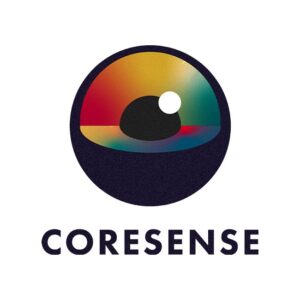| Project name: | CoreSense: A Hybrid Cognitive Architecture for Deep Understanding |
| Acronym: | CoreSense |
| Project website: | coresense.eu |
| ID code: | 101070254 |
| Call: | Call: HORIZON-CL4-2021-DIGITAL-EMERGING-01 Topic: HORIZON-CL4-2021-DIGITAL-EMERGING-01-11 |
| Supported by: | European Union – Horizon Europe |
| Project duration: | 10/2022-09/2026 (48 months) |
| Principal investigator at CIIRC: | prof. Dr. Ing. Robert Babuška |
| Coordinator: | UNIVERSIDAD POLITECNICA DE MADRID |
| Project partners: | TECHNISCHE UNIVERSITEIT DELFT, NL FRAUNHOFER GESELLSCHAFT ZUR FORDERUNG DER ANGEWANDTEN FORSCHUNG, DE UNIVERSIDAD REY JUAN CARLOS, ES PAL ROBOTICS, ES IRISH MANUFACTURING RESEARCH COMPANY LIMITED BY GUARANTEE, IE CZECH TECHNICAL UNIVERSITY PRAGUE, CZ |
| Budget: | Total budget/EU support: € 5 409 839.38 Support for CIIRC CTU: € 446 250 |
Abstract:
Cognitive robots are augmenting their autonomy, enabling them to deployments in increasingly open-ended environments. This offers enormous possibilities for improvements in human economy and wellbeing. However, it also poses strong risks that are difficult to assess and control by humans. The trend towards increased autonomy conveys augmented problems concerning reliability, resilience, and trust for autonomous robots in open worlds. The essence of the problem can be traced to robots suffering from a lack of understanding of what is going on and a lack of awareness of their role in it. This is a problem that artificial intelligence approaches based on machine learning are not addressing well. Autonomous robots do not fully understand their open environments, their complex missions, their intricate realizations, and the unexpected events that affect their performance.
An improvement in the capability to understand of autonomous robots is needed. This project tries to provide a solution to this need in the form of 1) a theory of understanding, 2) a theory of awareness, 3) reusable software assets to apply these theories in real robots, and 4) three demonstrations of its capability to a) augment resilience of drone teams, b) augment flexibility of manufacturing robots, and c) augment human alignment of social robots. In summary, we will develop a cognitive architecture for autonomous robots based on a formal concept of understanding, supporting value-oriented situation understanding and self-awareness to improve robot flexibility, resilience and explainability.

The project has received funding from the Horizon Europe Programme under grant agreement No. 101070254.
Funded by the European Union. Views and opinions expressed are however those of the author(s) only and do not necessarily reflect those of the European Union or European Research Council Executive Agency. Neither the European Union nor the granting authority can be held responsible for them.


